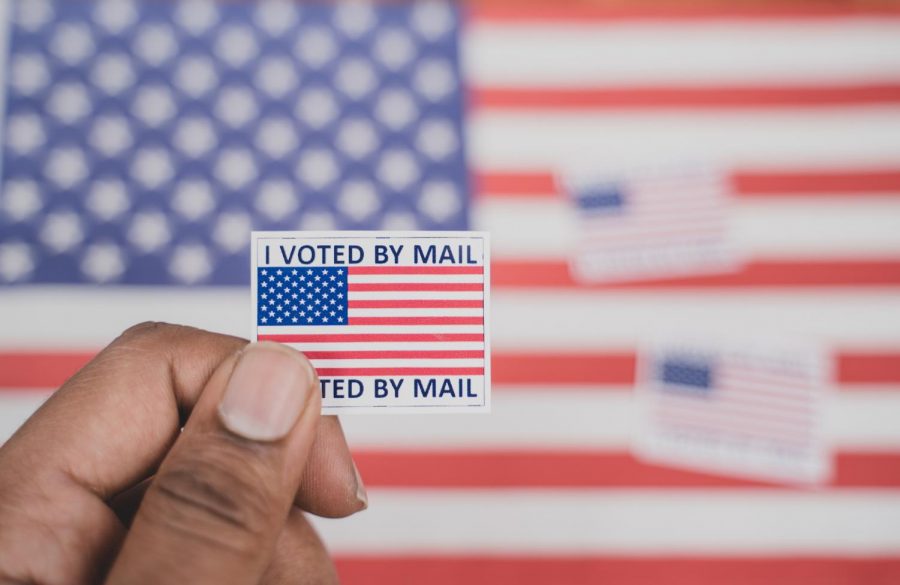Mailing the Election
The 2020 presidential election is predicted to be the largest by mail election in US history with nearly 80 million mail in ballots being cast this year, creating concern for lawmakers and voters alike, as the future of the country heavily relies on the United States Postal Service’s capability to handle the additional influx of mail. As the coronavirus continues to wreak havoc on the nation with no end in sight, the concern for another spike and the wellness of constituents has pushed some states to send mail in ballots to everyone registered to vote, making the process more convenient than ever before. This additional stress of a pandemic and election meeting the already struggling USPS leaves doubts around the validity of the election results.
The Post Office was established in Article 1 Section 8 of the Constitution, the enumerated powers of the legislature, as it states “the Congress shall have the power to… establish post offices and roads.” This short but powerful statement can be interpreted two ways: Congress has the power to establish it but does not have to maintain a USPS; they could turn to private corporations to let competition create a better market, or Congress and the US have a responsibility to ensure the transportation and security of mail across the nation. Presently, the United States is using the latter with the USPS being an independent executive agency, putting it within the government bureaucracy.
Major financial losses started in the early 2000s with the onset of email and instant messengers providing a quicker and easier way to deliver mail, reducing the demand for USPS services and products. These losses were magnified in 2006 with the Postal Accountability Act under George W. Bush that required the USPS to begin pre-funding employee future health benefits in the Postal Service Retiree Health Benefits Fund. From 2003-2006, the USPS operated in a surplus while from 2007-2019 it operated in a loss that totaled at $8.8 billion in 2019. The Post Office relies on stamps and postage costs to operate, as the service receives no tax dollars.
The need for funding has led to the proposed removal of underused mailboxes and sorting machines, the reduction of overtime hours, and the reduction of mailing days and the end of Saturday shipping. These proposals would drastically slow the speed of deliveries across the nation. Additionally, the reduction of these services before the election raises the eyes of 21 states planning to sue the postal service to bring about policy changes that continue the speed and quality of service in both election mail and the everyday essential information. The states are bringing these suits on the claim that the reduction of post office services infringes on the state’s power to run fair elections, as the states and Congress have the responsibility of ensuring the safety of elections.
Pennsylvania’s Attorney General, Josh Shapiro, who is leading one of the suits stated in a press conference, “We will be taking action to reinstate Postal Service standards that all Americans depend on, whether it’s for delivering their prescription drugs or for carrying their very right to vote.” A second suit is being led by Washington Attorney General Bob Ferguson, naming Donald Trump as a defendant, along with DeJoy, the Postal Service, and the board of chairmen that were addressed in the Pennsylvania suit.
The House of Representatives is also actively pursuing paths to put a hold on changes to the USPS. A bill sponsored by New York Representative Carolyn Maloney supplies the Post Office with a $25 billion stimulus and the prohibition of changes to the post office until after January 1st to allow the continuance of operations as usual. The bill passed with support from a few House republicans with Brian Fitzpatrick of Pennsylvania commenting to the Times, “We should be preserving and enhancing U.S.P.S. delivery standards and services, not implementing operational changes that could delay delivery times and undermine quality services that every American depends on.”
While the bill made it through the House, it is unlikely to make it through the Senate, with a judiciary hearing for DeJoy, the postmaster general, in the rearview mirror, the Majority Leader Mitch McConnel (R Kentucky) has stated, “The facts show the U.S.P.S. is equipped to handle this election, and if a real need arises, Congress will meet it. The Senate will absolutely not pass stand-alone legislation for the Postal Service while American families continue to go without more relief,” with the lack of coronavirus relief, many are seeing the election as a way to bring about new change to the nation which focuses back on the emphasis of mail. The Senate has previously provided $10 billion in aid to the USPS, which is untouched by the DeJoy leadership.
As both houses have concluded their investigations into DeJoy, the main focuses by Democratic leaders surrounded his donations to Trump, funds in USPS competitors, and the ability of the USPS to handle the influx of mail to the system. The Republican leaders portrayed an image of “cancel culture” in effect and negated the concerns presented. The pressure applied by both houses has led DeJoy to backtrack on some policy implementation, postponing it to a later date.
As the uncertainty around the future of the post office continues to build, many are concerned that the results of the election will not match the will of the American people. Senator Rony Wyden of Oregon even says that this election cycle could be heading towards an “electoral Chernobyl.” While this comment may seem hyperbolic, in every election in years past, major cities and minority groups have experienced delays at voting booths, voter roll purges, and lack of machines; so witnessing the removal of mailing equipment on the eve of a main in election rings the same tone of voter suppression as in the years before. According to the Associated Press, during the 2018 Georgia midterm elections, 53,000 voter registrations were blocked with 80% affecting POC. With every election, the concern for voter suppression is there, and this year it takes the form of mail restrictions.
Despite the affairs surrounding the election, a tweet from the USPS states, “If all Americans vote by mail this year- 330 million ballots over the course of the election would be only 75% of what we deliver in one single day,” but that is followed by another tweet that reads, “If you plan to vote by mail, plan ahead,” foreshadowing the stress on the agency tasked with ensuring the votes of millions of Americans are counted. The capacity for a safe and protected election is there, but only the execution in November will be the judge of the actions enacted by officials today.
























